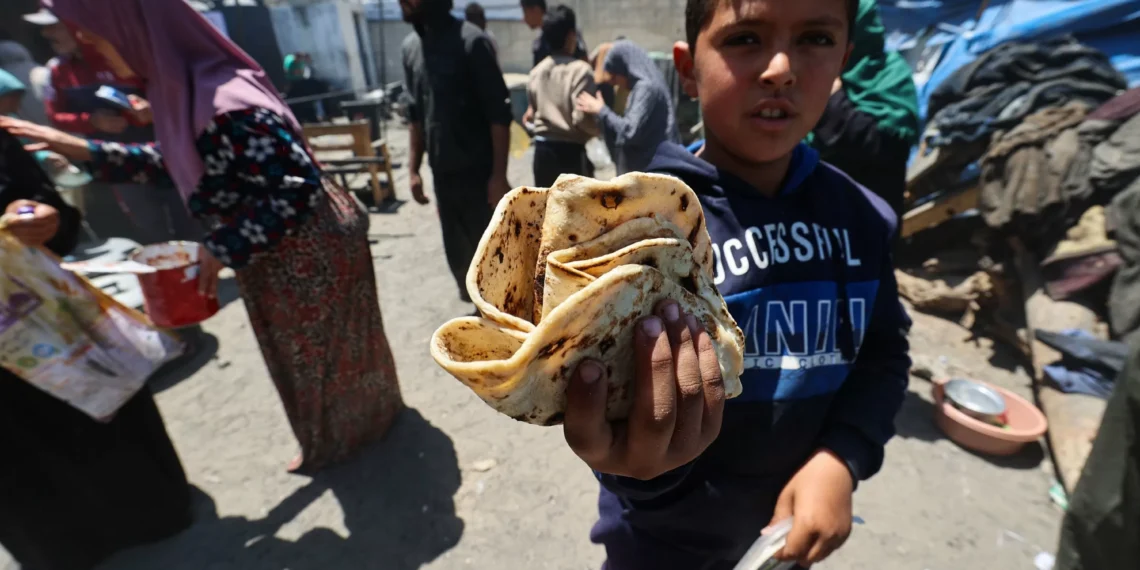Nearly 60 days into Israel’s total blockade of Gaza, the situation for Palestinian families has reached a critical point. Aid groups have exhausted their food supplies, markets are standing nearly empty, and families are left desperate to feed their children. The blockade has caused severe shortages of essential goods, leaving many families struggling to survive.
The blockade, which began on July 8th, was put in place by Israel in response to rocket attacks from Hamas, the militant group in control of Gaza. Since then, the situation has only worsened, with Israel tightening its restrictions on the movement of goods and people in and out of the Gaza Strip. This has had a devastating impact on the already impoverished population, who are now facing a humanitarian crisis.
According to the United Nations, nearly 80% of Gaza’s population is dependent on aid, and the blockade has severely limited the delivery of essential supplies such as food, medicine, and fuel. The few goods that do make it into Gaza are often too expensive for the average family to afford. As a result, families are forced to make difficult choices, such as skipping meals or selling their belongings to buy food.
The situation is particularly dire for children, who are the most vulnerable in times of crisis. Many children in Gaza are suffering from malnutrition and are at risk of long-term health problems. The lack of access to clean water and proper sanitation is also a major concern, as it increases the risk of disease and illness.
The blockade has also had a devastating impact on the local economy. With markets standing nearly empty, thousands of people have lost their jobs, leaving them unable to provide for their families. This has created a cycle of poverty and desperation, with many families struggling to make ends meet.
The international community has condemned the blockade and called for it to be lifted immediately. The UN has warned that if the blockade continues, it could lead to a full-blown humanitarian crisis. Aid agencies are also calling for urgent action, as their resources are rapidly depleting. They are urging Israel to allow the delivery of essential goods and to ease restrictions on the movement of people in and out of Gaza.
In the midst of this crisis, there are glimmers of hope. Aid agencies are working tirelessly to provide assistance to those in need. Despite the challenges, they have managed to distribute food and other essential items to thousands of families. Local organizations and volunteers are also stepping up to help their communities, providing meals and support to those who are struggling.
The people of Gaza are also showing incredible resilience and determination in the face of adversity. Despite the hardships, they remain strong and united, supporting each other and refusing to give up hope. They are determined to overcome this crisis and rebuild their lives.
As the blockade continues, it is essential for the international community to step up and provide much-needed support to the people of Gaza. The situation is urgent, and every day that passes without action puts more lives at risk. It is time for the blockade to end, and for the people of Gaza to be given the chance to rebuild their lives and their communities.
In conclusion, the blockade of Gaza has had a devastating impact on the lives of Palestinians. Families are struggling to survive, and children are facing a humanitarian crisis. It is time for the international community to come together and take action to end this crisis. We must stand in solidarity with the people of Gaza and provide them with the support they urgently need. Together, we can help alleviate the suffering and bring hope to those who have been affected by this crisis.







